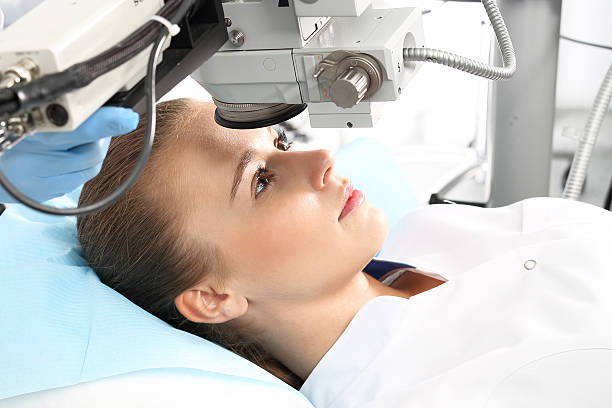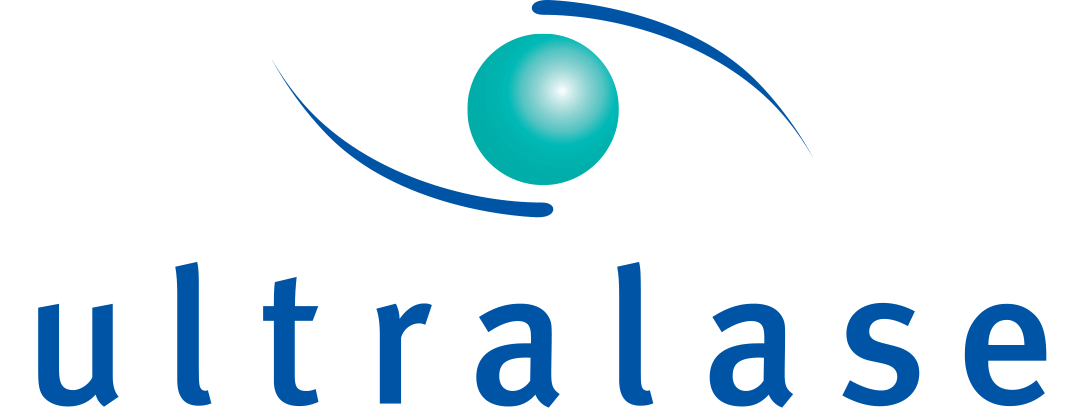Understand the benefits of laser eye surgery and implantable contact lenses
01 September 2022

Which vision correction treatment is best for you?
We offer several types of vision correction surgery at Ultralase, including laser eye surgery, refractive lens exchange, cataract treatment, and implantable contact lenses. Today, we’re looking into two of the treatments which are most popular with our younger patients: laser eye surgery and implantable contact lenses. Although they both require a surgery, the process of each treatment is different, as well as the length of time of each surgery and the recovery process. We will help you differentiate the two treatments and understand which is the best vision correction option for you.
Until you visit us for a consultation, you won’t know which treatment (if any) you’re suitable for. Your suitability is based on a number of factors such as corneal thickness, prescription, eye dryness, and overall eye health. At your consultation the optometrist will advise which surgery is the best choice for you, and will explain the benefits and risks associated with each so you can make an informed decision.
Benefits of laser eye surgery
Laser eye surgery is one of the most popular vision correction options for people who have worn contacts or glasses throughout their life. One of the biggest benefits is that the surgery only takes 10-15 minutes in total as it is a very quick process. You will have eye drops that numb your eyes to ensure you do not feel discomfort during treatment.
Another benefit of laser eye surgery is that it has a quick recovery time. For example, one of our Ultralase patients had a LASIK and she resumed her yoga sessions in just two days! 98% of Ultralase patients achieve driving standard vision following their laser eye surgery with us.
Ultimately, the biggest benefit of having the laser eye surgery in general is that it can improve your vision and allow you to live free from glasses and contact lenses. This is most patients’ end goal, as they experience the struggles of glasses and contact lenses on a daily basis. Laser eye surgery is suitable for patients with short sighted prescriptions up to -10 and long sighted prescriptions up to +6.
Why you may not be suitable for laser eye surgery
You may experience some side effects after the laser treatment but most patients find that these are temporary. For example some patients experience dry eyes following the laser treatment, however this usually improves within the first couple of months after surgery as your eyes heal. However, this does mean that people who have dry eyes prior to treatment may be found unsuitable, as dry eyes can affect your vision and the healing process.
Not everyone is eligible for laser eye surgery, for example if you have thin corneas. This is because laser eye surgery is a treatment which removes a thin amount of corneal tissue. If you don’t have a thick enough cornea to accommodate this, you may be recommended ICL treatment instead. You can read more about suitability on our website here.
At Ultralase, we are honest and open with our patients. If you are not suitable for laser eye surgery, we will not recommend you for treatment. It is important to determine your suitability for treatment, and this can be done at your free consultation with us.
What is implantable contact lens surgery?
Implantable contact lenses (ICLs) are also known as phakic lenses. The surgery involves placing an artificial collamer lens between your iris and your eye’s natural lens, and it’s designed to remain in your eye for the rest of your life. ICL treatment is known to be one of the safest eye surgeries with a complication rate of less than 1 in a 1,000 cases.
ICLs can treat stronger prescriptions than laser-based treatments, going up to -20 for short sight and +10 for long sight. This makes ICLs particularly popular with patients who rely on glasses and contact lenses for strong prescriptions.
Benefits of implantable contact lenses (ICL)
As ICL treatment doesn’t involve reshaping your corneal tissue, it is a better option for patients who have previously suffered with dry eyes. This is because the lens is inserted into your eye while the cornea is left untreated. ICLs also provide flexibility because you have the option to remove or replace the lens years down the line. This means that, should your prescription change in the future, you have the choice to correct your vision further. Another benefit of ICL surgery – as with all vision correction treatment – is that it removes the hassle of having to clean your contacts and glasses every day. ICLs are also designed to last in your eye for the remainder of your life.
Even though the ICL is a long-term solution, it is still recommended that you go for annual checks with your local Optimax clinic just to ensure that the implants are still in place and that your eye is healthy. After the ICL surgery, you will be required to attend an endothelial cell count test each year. This test will tell us how many endothelial cells are present in your eyes to ensure the number of cells stays above a safe and healthy level.
Cost of treatment
We have a fixed price of £3,245 per eye for ICL treatment, and £1,995 per eye for laser eye surgery. These prices are fixed regardless of your prescription, as it doesn’t actually cost us anything extra to treat higher prescriptions. We understand that these prices are something that most people will want to spread over a period of time which is why we offer a range of payment plans, including an interest free option, to make the treatment more accessible.
When it comes to the benefits of laser eye surgery and implantable contact lenses, it is clear that each option will suit people with different visual requirements, lifestyles and budgets. If you would like to book in for a consultation to find out which is the best option for you, you can do so on our website here, or by giving us a call on 0800 988 6390.
Sources:
ICL Surgery: Candidates, Risks, Pros, Cons And 2022 Price (hayatmed.com)
Contact Lenses - Caster (castereye.com)
The Pros & Cons of LASIK (Is it Worth it?) (visioncenter.org)
Pros and Cons of Laser Eye Surgery: Is It Worth It? | NVISION Eye Centers (nvisioncenters.com)
Twenty Years Later, LASIK Has Its Pros and Cons (webmd.com)
The 5 Likely Reasons Someone Won't Qualify For LASIK | Dr. Lee (dleemd.com)
What are the symptoms of Dry Eye Disease? | Optimax
Endothelial Cell Count Test Before Eye Surgery | Ft. Lauderdale Eye Associates (ftleye.com)
Back to Blog
